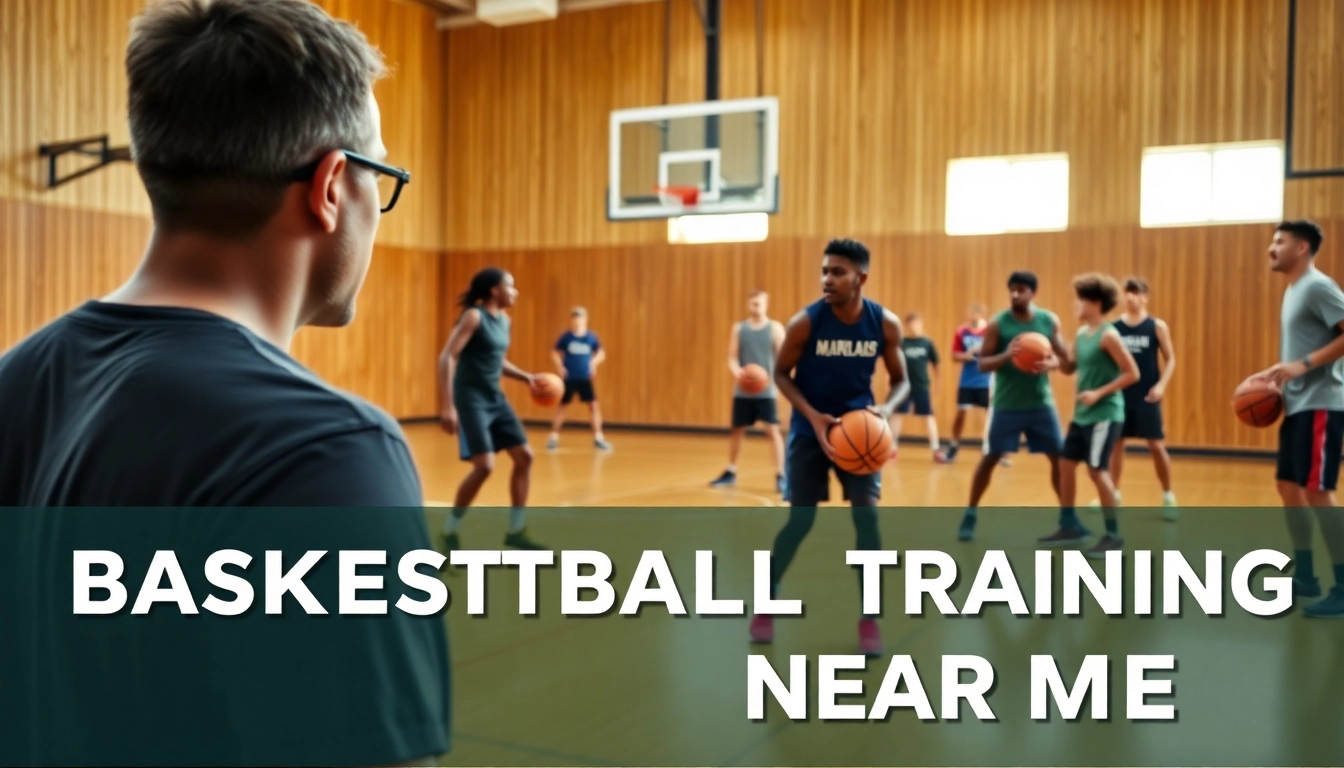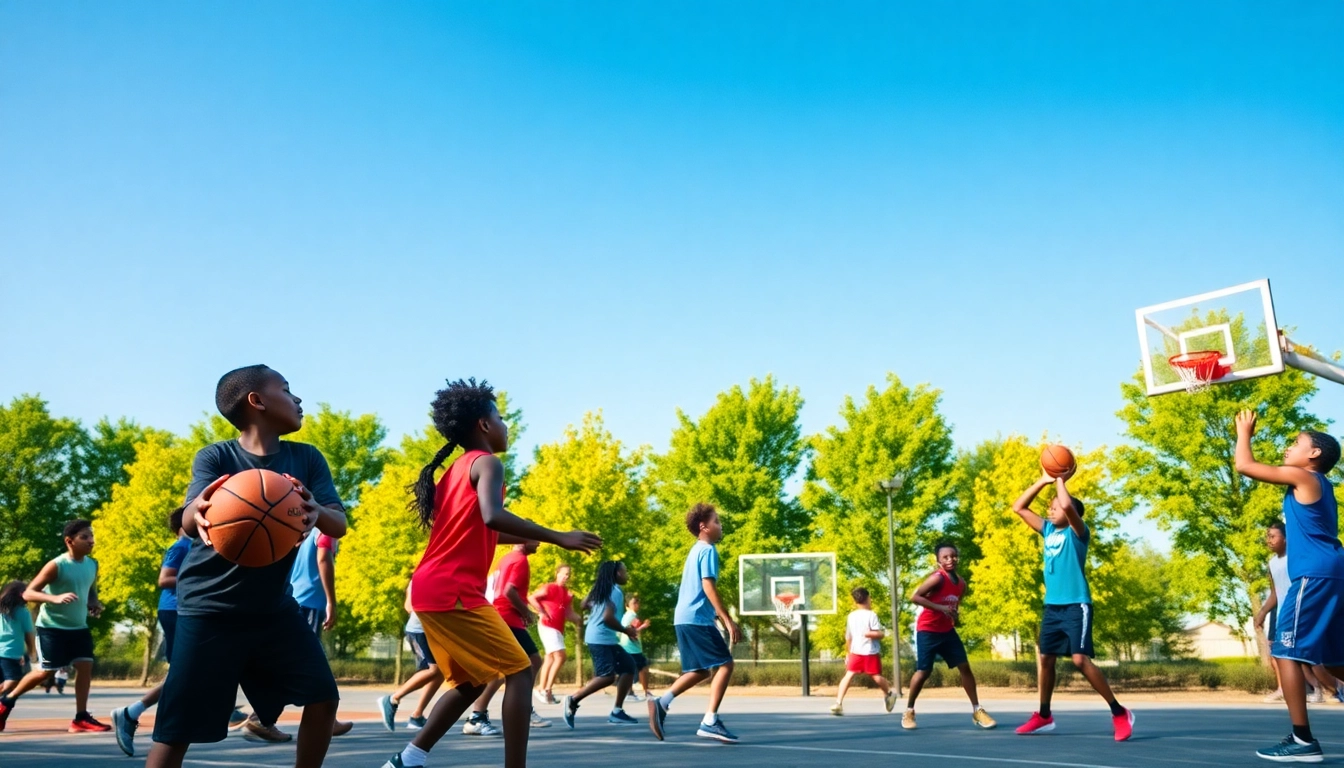Understanding Basketball Training Programs
What Are Basketball Training Programs?
Basketball training programs are structured courses designed to enhance the skills, techniques, and overall performance of players, regardless of their age or skill level. These programs often include a variety of training methods and activities tailored to meet individual player needs. Typically, they encompass drills focused on dribbling, shooting, passing, defense, and game strategies. Some training programs may additionally offer performance analysis and strength and conditioning components to support players in achieving peak athletic performance.
Why Training Is Essential for Aspiring Players
For aspiring basketball players, participating in training programs is crucial for several reasons. First, these programs help develop fundamental skills that are essential to success in the sport. Regular practice and skill development lead to improved performance during games. Furthermore, training enhances physical conditioning, agility, and strength, crucial elements that contribute to a player’s long-term success. Equally important, basketball training fosters mental toughness and teamwork, teaching players how to cooperate and communicate effectively while under pressure.
Types of Programs Available Nearby
A variety of basketball training programs can be found in most communities, catering to different age groups and skill levels. Here are some common types you might discover:
- Youth Training Programs: These are often designed for young athletes, focusing on skill development and teamwork in a supportive environment.
- Advanced Skill Development Clinics: Targeted at more experienced players, clinics delve into specific skills such as shooting mechanics or defensive strategies.
- Summer Camps: Many organizations offer week-long camps during the summer, providing intensive training and an opportunity for players to bond with peers.
- Private Coaching: One-on-one sessions with experienced coaches for personalized skill enhancement and tailored training plans.
- Open Gym Sessions: Casual, less structured events that allow players to practice their skills without formal instruction while also fostering a sense of community.
Key Features of Effective Basketball Training
Skill Development Techniques
Effective basketball training programs use a variety of skill development techniques to help players refine their abilities. Some widely adopted methods include:
- Drill Repetition: Drills focused on key skills—like dribbling, shooting, and passing—encouraging muscle memory through repeated practice.
- Video Analysis: Utilizing video footage to analyze players’ techniques, enabling them to see areas for improvement and track their progress over time.
- Scenario-Based Training: Teaching players to respond to game situations through simulated drills that mimic real game dynamics.
- Strength and Conditioning: Integrating fitness training tailored for basketball, which focuses on agility, speed, endurance, and strength.
Importance of Personalized Coaching
Personalized coaching is a cornerstone of successful training programs. A dedicated coach can tailor training techniques to meet the unique needs of each player, addressing their strengths and weaknesses. This level of attention not only boosts individual skill development but can significantly enhance players’ confidence. Many programs include assessments that guide coaches in creating customized training regimens. Moreover, a great coach fosters a supportive environment that encourages players to strive for personal excellence while enjoying the learning process.
Facilities and Resources Needed
Quality facilities and resources are critical for effective basketball training programs. Facilities equipped with basketball courts, weight training areas, and access to sports science professionals can greatly enhance the training experience. Essential resources include:
- Training Equipment: Items like basketballs, cones, and resistance bands for drills; shooting machines for skill practice.
- Fitness Equipment: Weights, agility ladders, and cardio machines to improve athletes’ physical condition and strength.
- Access to Coaches: A knowledgeable coaching staff with experience in player development and strategies to guide players on their journey.
Finding the Right Program Near You
Researching Local Training Academies
Finding the right basketball training program requires diligent research. Start by looking for local training academies that match your goals. You can search online for basketball training programs near me or ask for recommendations from fellow athletes or coaches in your network. Social media and sports forums can also provide valuable insights into the reputation and effectiveness of different programs.
Assessing Coaching Credentials
One of the most crucial aspects of a training program is its coaching staff. Evaluate the credentials and experience levels of the coaches. Look for information on their coaching history, success with previous players, and any certifications they may hold. Coaches who’ve played at a high level or have experience with professional or collegiate teams can often provide valuable insights that enhance your training experience.
Reading Reviews and Testimonials
Reading reviews and testimonials can offer a clearer picture of the quality and effectiveness of a basketball training program. Seek out previous or current participants’ feedback to gauge their experiences. Pay attention to comments about the training methods, coach interactions, and overall atmospheres. This perspective can often shine light on aspects you might not find in promotional materials.
Success Stories and Benefits of Training
Examples of Players Who Have Benefited
Many players have transformed their games through dedicated training programs. For example, NBA stars often emphasize the role of coaching and training in developing their skills. Players like Kobe Bryant and LeBron James have credited their success to rigorous training routines and instruction early in their careers. These individuals serve as examples of how commitment to training and developing fundamental skills can significantly impact performance on the court.
Long-term Advantages of Regular Training
Regular participation in basketball training programs delivers myriad long-term benefits. Beyond the immediate skill improvements, players can expect:
- Enhanced Performance: Continuous practice leads to better game performance due to refined skills and increased physical fitness.
- Increased Confidence: Mastery of skills breeds self-assurance, enabling players to play more assertively during games.
- Networking Opportunities: Training programs often attract a diverse range of players and coaches, opening doors to new connections and future opportunities.
Community and Networking Opportunities
Basketball training programs often foster a sense of community among participants, which can be invaluable. These programs usually bring together players from various backgrounds, allowing for interaction and friendships that can last for years. Additionally, networking with coaches and experienced players can provide insights into college recruitment or opportunities to join higher-level teams.
Getting Started with Basketball Training Programs
Steps to Enroll in a Local Program
Once you’ve identified potential training programs, follow these steps to enroll:
- Contact the Academy: Reach out to the program for additional information about their offerings, schedules, and requirements.
- Visit the Facility: If possible, take a tour of the training center to assess the quality of their facilities and meet the coaching staff.
- Sign Up: Complete the registration process. Be sure to ask about trial periods or introductory sessions.
Setting Goals for Your Training
Before starting a training program, establish specific goals that you want to accomplish. Whether it’s improving shooting percentage, enhancing defensive skills, or boosting physical fitness levels, having clear objectives can guide your training and provide motivation. Work with your coach to set these goals and regularly review them to ensure you are on track.
Maintaining Motivation and Commitment
Staying committed to a training program can be challenging, but motivation can be maintained by setting milestones and tracking progress. Celebrate small achievements, and remind yourself of the long-term benefits of consistent practice. Joining a supportive group or having a training partner can also stimulate accountability and foster an environment of encouragement.


